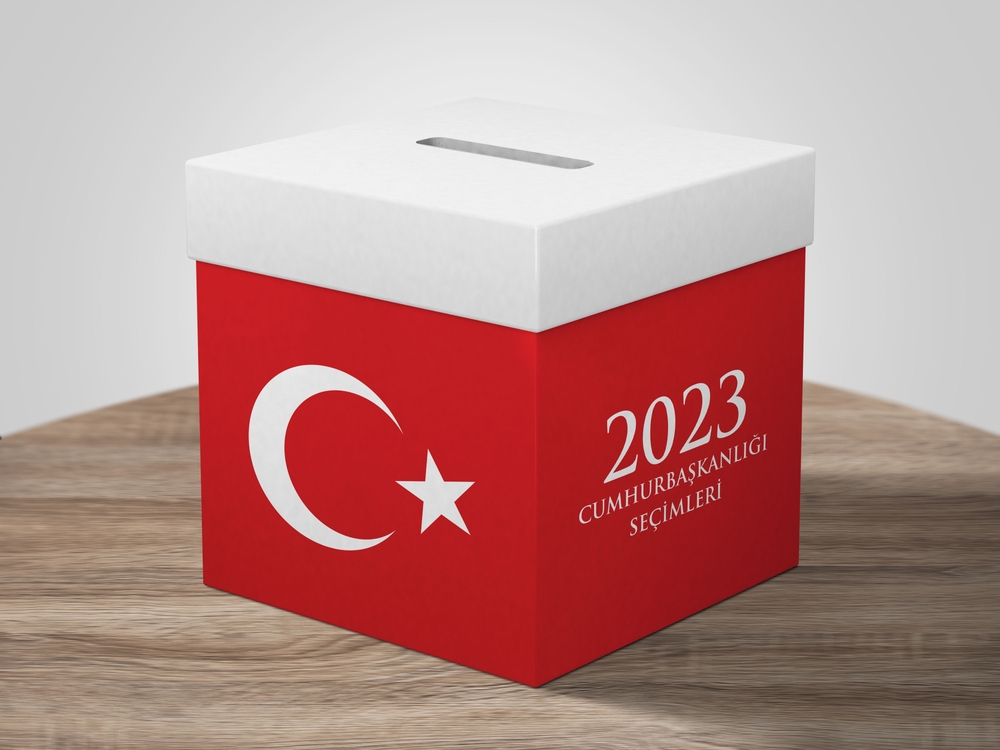
Recep Erdoğan faces a turning summer of 2023
Before the new year, the position of Turkish President Recep Tayyip Erdoğan seemed unclouded and despite the economic difficulties in the country, his “nuclear” conservative electorate was firmly on his side, taking into account the strong administrative resource, ensuring him a confident victory in the elections in the summer of 2023 with a result of 52-55%. However, 2023 presented the Turkish “sultan” several unpleasant surprises. First, the inflationary and economic crisis, which is particularly irritating to the urban middle class, has not yet been overcome. Despite the fact that inflation fell from 84.4% in November to 57.6% in January, the citizens still blame the incumbent president for their problems. Unfortunately, sudden natural disasters also hit Erdogan’s loyal provincial electorate. On February 6, two powerful earthquakes struck southern Turkey nine hours apart. The epicenter of the first, with a magnitude of 7.8, was in the Şehitkamil area of Gaziantep province, while the second, with a magnitude of 7.5, was in the Ekinözü area of Kahramanmaraş province. More than a thousand aftershocks were registered after the earthquakes, with the strongest being of magnitude 6.7. This natural disaster was the most powerful in Turkey since the 1939 Erzincan earthquake, and to date more than 45,000 citizens of the country have been victims. Erdoğan’s rating in both Gaziantep and Kahramanmaraş was very high but the impotence of the country’s leadership in dealing with the grave consequences of the disaster, as well as the losses of more than 35 billion dollars (4% of the country’s GDP) that brought destruction to the regions, hardly had a positive effect on him.

As an experienced politician, Recep Erdoğan began to sense negative trends for him even before the earthquake, and was well aware that within a year, economic and political problems could guarantee the end of his reelection prospects. That is why in early January, at a meeting in Antalya, he once again admitted the possibility of postponing the presidential elections in the country to an earlier date, “based on seasonal conditions”. However, he could not find legal grounds for this, and he had to look for a date of postponement within the existing framework of late spring and early summer, which allowed him to gain not more than a month in time. On January 24, the President announced that he considered it necessary to hold presidential and parliamentary elections ahead of schedule. Of course, he motivated this decision by symbolic historical reasons, which were a challenge to his main opponents and the Kemalists of the Republican People’s Party. Erdoğan named May 14 as a possible date, because on that day in 1950 elections were held in the country, which were won by the ideological opponents of Atatürk. Speaking to his fellow party members in Ankara, Erdoğan openly stigmatized what he called the “undemocratic” opposition, saying that 73 years later again on this day the Turkish people will say no to these applauding putschists from “table for six” referring to a coalition of major anti-Erdoğan parties. Such a step has a practical side and Erdoğan wants the population not to forget how, since the New Year, the “generous Sultan” has increased their salaries and social benefits.
For now, the final election date is set for May 14, unless there is a reverse political consensus. However, it should be understood that only the first political act will take place on this day. Most probably the decisive battle will take place in the second round on May 28. An uneasy situation for the president develops not only directly with his elections, but also with the struggle for a parliamentary majority. At the moment, the People’s Alliance coalition led by Erdoğan’s Justice and Development Party has 340 seats out of 600 in parliament, having won 42.56% in the last election in 2018. The average sociology estimation is that the Justice and Development Party gains 31-32%, and together with the allied parties and blocs about 39-40%. If the election results are consistent with sociology, Erdoğan’s bloc will get about 240-250 seats. Formally, the “bloc of six” gains the same or even fewer seats, but these calculations do not take into account the Kurdish People’s Democratic Party, which will never support Erdoğan’s bloc when forming the ruling coalition in the Great National Assembly, which is equivalent to half a defeat for the president.
Moreover, if the opposition wins both elections, it promises to turn Turkey into the parliamentary republic like it was before Erdoğan’s reforms in 2017. The country has now a presidential republic, and the outcome of the presidential election is fundamental. Here the situation for Erdoğan is even more difficult. His position has weakened considerably recently, and in addition, the opposition won in all major cities in regional elections: in Ankara, Istanbul, Antalya and Adana. According to unbiased opinion polls, Erdogan gets no more than 35% of the vote. Considering that the electorate of all the major parties is against the Turkish President, he would get no more than 45-47% of votes in the second round against 53-55% for his opponent, even by the most optimistic estimates. There is even a rather fantastic option that if the Union of Six and the Kurdish party nominate a single candidate, Erdoğan could be defeated already in the first round. And yet, in reality, a second round is almost inevitable. In this scenario, according to many polls, Erdoğan would lose to almost any “single opposition candidate,” including Istanbul’s liberal mayor Imamoğlu, Ankara’s nationalist mayor Yavş, the popular economist Babacan and even current leader of the Good Party Meral Akşener. However, this is only theory, while in reality the opposition, after long discussions and internal confrontations, still nominated Kemal Kılıçdaroğlu, the “party chief” of the Republican People’s Party from the Union of Six, who is also strong in the polls and is already mentally trying on Erdoğan’s “lame duck” position.

At first glance, the situation looks almost hopeless for Erdoğan. According to the most pessimistic polls, the elections will end with a 60-65% advantage of the opposition over 35-40% for Erdoğan and his bloc already in the first round. Erdoğan can do nothing about the economic crisis either, and successes in foreign policy do not cover internal miscalculations. However, politics is a much more complex matter and is not confined to sociology and working with the electorate. For example, the incumbent president does not give up hope of a quarrel between the Union of Six and Kurdish political parties and movements. But Erdogan’s main bet in spring-summer 2023 will be on the capabilities of his administrative apparatus and the power bloc represented by the police and the army. Many people believe, not unreasonably, that the president plans to use his administration to falsify the results of the election. If his plan is realized, the “People’s Alliance” would gain 40% to 43% in the parliamentary elections, and Erdoğan could win against all odds already in the first round with 51-53%, which would keep him in full power, despite his recent mistakes.
Of course, Erdoğan’s “surprise” victory will cause widespread protests from opposition supporters, especially in large and liberal cities such as Istanbul and Ankara. If this happens, Erdoğan may need both the police and the army on his side. Turkish Interior Minister Süleyman Soylu, Defense Minister Husuli Askar and Turkish Chief of General Staff Yashar Güler, all appointed by Erdoğan, are fully loyal to the president and are ready to suppress the protests as harshly as possible, if it should become necessary. If such a scenario materializes, a state of emergency and even martial law in the country could become realistic. Of course, mass “theatrical” rallies of Erdoğan’s supporters will be held in Istanbul, Ankara and other cities after the elections to legitimize them. Activists from far-right youth organizations loyal to Erdoğan, particularly the Bozkurtlar (Grey Wolves) militias that became famous during the war in Syria, are likely to be involved in dispersing the protests. But so far, this is only speculation, based on the myth of Erdoğan’s maniacal love of power. Conducting undemocratic elections and dispersing protests will lead to condemnation by U.S. and EU leaders and increase their pressure on Erdoğan’s regime, up to and including the isolation of the country. Not everyone in Turkey is happy with the paramilitary dictatorship option, including even the military. Turkey’s election could be the collapse of Erdoğan’s odious regime or a transition to a new qualitative form. Either way, they will be one of the most fascinating and intriguing political events of 2023.


I quite like reading through an article that will make people think. Also, thank you for permitting me to comment!